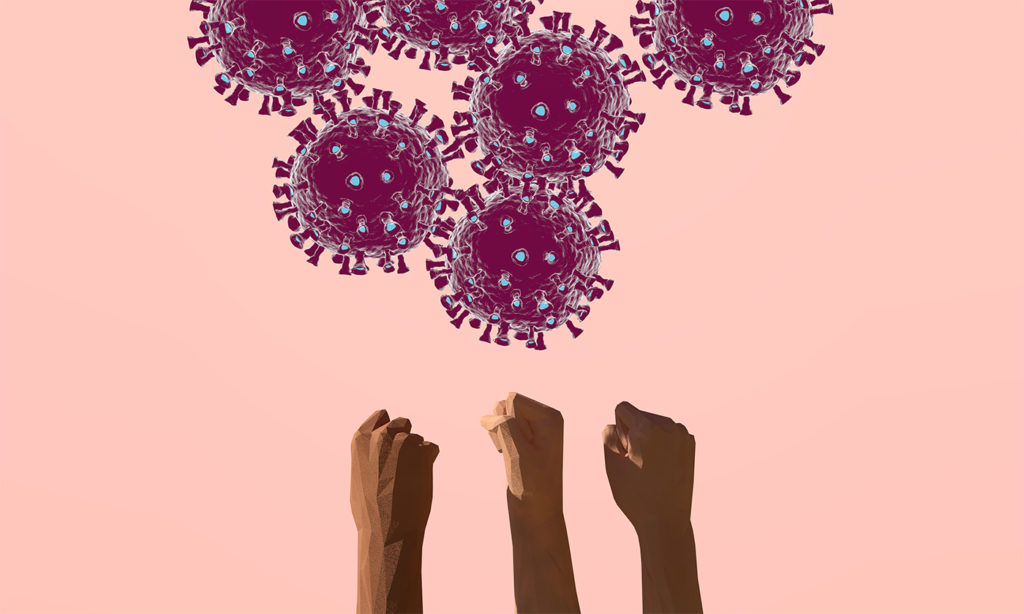 David Korten is co-founder of YES! Media, president of the Living Economies Forum, a member of the Club of Rome, and the author of influential books, including When Corporations Rule the World and Change the Story, Change the Future: A Living Economy for a Living Earth. His work builds on lessons from the 21 years he and his wife, Fran, lived and worked in Africa, Asia, and Latin America on a quest to end global poverty.
David Korten is co-founder of YES! Media, president of the Living Economies Forum, a member of the Club of Rome, and the author of influential books, including When Corporations Rule the World and Change the Story, Change the Future: A Living Economy for a Living Earth. His work builds on lessons from the 21 years he and his wife, Fran, lived and worked in Africa, Asia, and Latin America on a quest to end global poverty. From Emergency to Emergence
TMS PEACE JOURNALISM, 27 Apr 2020
David Korten | YES! Magazine - TRANSCEND Media Service
23 Apr 2020 – The COVID-19 emergency has exposed our societies’ failure to address the needs of billions of people. Simultaneously, we are witnessing a fundamental truth about human nature: There are those among us eager to exploit the suffering of others for personal gain. We can be reassured, however, by how few of them there are. Their actions contrast starkly with the far greater numbers at all levels of society demonstrating their willingness, even eagerness, to cooperate, share, and sacrifice for the well-being of all.
The pandemic has also exposed extreme vulnerabilities in the global market economy, including its long and highly specialized linear supply chains, corporate monopolies shielded from market forces, privatized technologies, and ruthless competition without regard for its impact on people and the Earth.
This is an unprecedented opportunity to rethink how our beliefs, values, and institutions shape our relationships. We can create a world that works for everyone or face a future that no longer works for anyone.
Discussions now underway in many community, national, and global forums suggest a significant widening of what is known as the Overton Window: the range of public policies that the mainstream population is prepared to consider at a given time.
This is an unprecedented opportunity to rethink how our beliefs, values, and institutions shape our relationships.
While there is an almost universal desire to move rapidly beyond the COVID emergency, the spectrum of what we want post-pandemic is broadening. Many are articulating that they do not want to simply return to business as usual. In the United States, for example, we see the need for:
- A system of health care accessible to everyone regardless of income or documentation;
- Just compensation and job security for those who do our most essential but often least-rewarded work; and
- A guarantee that if your job evaporates, you won’t starve.
At a deeper level, this emergency is reminding us that we are living with another emergency—climate change. The combination of the two emergencies is helping us awaken to the profound implications of the simple truth that we are living beings born of and nurtured by a living Earth. Our well-being depends on Earth’s well-being. Life is the goal, community is essential, and money is only a tool.
To avoid a climate catastrophe, we must use this opportunity to join in creating an economy that:
- Meets our basic needs while simultaneously healing and securing the health of the human community and Earth’s living systems; and
- Prepares us to respond rapidly and appropriately to the array of significant future emergencies likely to arise with alarming frequency.
From these insights, many additional imperatives follow, including the need to:
- Shift power from profit-maximizing corporations to self-organizing, self-reliant, life-serving communities;
- Achieve an equitable distribution of power and resources among and within these communities; and
- Limit the human use of resources to those applications (such as recycling and regenerative agriculture) that increase the well-being of people and nature while eliminating those (such as war and financial speculation) that consume massive resources to no beneficial end.
The expanding Overton Window may allow us to consider vast new possibilities. Here are two:
- We may see growing recognition of the distinctive social benefits of shopping in locally owned stores, operated by neighbors who pay local taxes and are in business to make a decent, but modest, living serving their neighbors. This contrasts starkly with the experience of impersonal corporate chains such as Amazon.com and Walmart that are in business solely to maximize the extraction of money from our local communities while leaving as little as possible behind.
- For those of us able to work at home and meet remotely via the web, the many benefits of doing so may make this form of working and meeting the new norm. We reduce the time devoted to long commutes in heavy traffic or sitting in crowded airports and planes. This change in our behavior carries the potential for a dramatic reduction in the need for cars and airplanes and the pollution that their production and operation create, while increasing opportunities to get to know our family and our neighbors. Better for the health of people, family, community, and Earth.
But would such changes mean lost jobs? Actually, a vast amount of work must be done. Among the needs that will become more important in a post-COVID world are:
- Converting to wind and solar energy.
- Growing nutritious food locally in ways that restore the health of the soil.
- Eliminating waste by recycling everything.
- Assuring everyone access to affordable high-speed internet.
- Caring for and educating our children.
- Preparing for the inevitable emergencies ahead.
- Providing care and housing for the homeless while helping those who can transition back to community life.
- Providing health care for everyone.
The COVID-19 crisis has imposed immense hardship on billions of people. But that hardship is dwarfed by what lies ahead if we continue on our current path. Now we must step up to prevent the collapse of the regenerative systems by which Earth creates and maintains the conditions we need to exist.
This current emergency provides the possibility for a new emergence—the birthing of a truly civil civilization dedicated to the well-being of all people and the living Earth.
______________________________________________
 David Korten is co-founder of YES! Media, president of the Living Economies Forum, a member of the Club of Rome, and the author of influential books, including When Corporations Rule the World and Change the Story, Change the Future: A Living Economy for a Living Earth. His work builds on lessons from the 21 years he and his wife, Fran, lived and worked in Africa, Asia, and Latin America on a quest to end global poverty.
David Korten is co-founder of YES! Media, president of the Living Economies Forum, a member of the Club of Rome, and the author of influential books, including When Corporations Rule the World and Change the Story, Change the Future: A Living Economy for a Living Earth. His work builds on lessons from the 21 years he and his wife, Fran, lived and worked in Africa, Asia, and Latin America on a quest to end global poverty. Tags: COVID-19, Conflict, Coronavirus, Economics, Environment, Human Rights, International Relations, Nonviolence, Peace Journalism, Social justice, Solutions, World
DISCLAIMER: The statements, views and opinions expressed in pieces republished here are solely those of the authors and do not necessarily represent those of TMS. In accordance with title 17 U.S.C. section 107, this material is distributed without profit to those who have expressed a prior interest in receiving the included information for research and educational purposes. TMS has no affiliation whatsoever with the originator of this article nor is TMS endorsed or sponsored by the originator. “GO TO ORIGINAL” links are provided as a convenience to our readers and allow for verification of authenticity. However, as originating pages are often updated by their originating host sites, the versions posted may not match the versions our readers view when clicking the “GO TO ORIGINAL” links. This site contains copyrighted material the use of which has not always been specifically authorized by the copyright owner. We are making such material available in our efforts to advance understanding of environmental, political, human rights, economic, democracy, scientific, and social justice issues, etc. We believe this constitutes a ‘fair use’ of any such copyrighted material as provided for in section 107 of the US Copyright Law. In accordance with Title 17 U.S.C. Section 107, the material on this site is distributed without profit to those who have expressed a prior interest in receiving the included information for research and educational purposes. For more information go to: http://www.law.cornell.edu/uscode/17/107.shtml. If you wish to use copyrighted material from this site for purposes of your own that go beyond ‘fair use’, you must obtain permission from the copyright owner.
Read more
Click here to go to the current weekly digest or pick another article:
TMS PEACE JOURNALISM:
